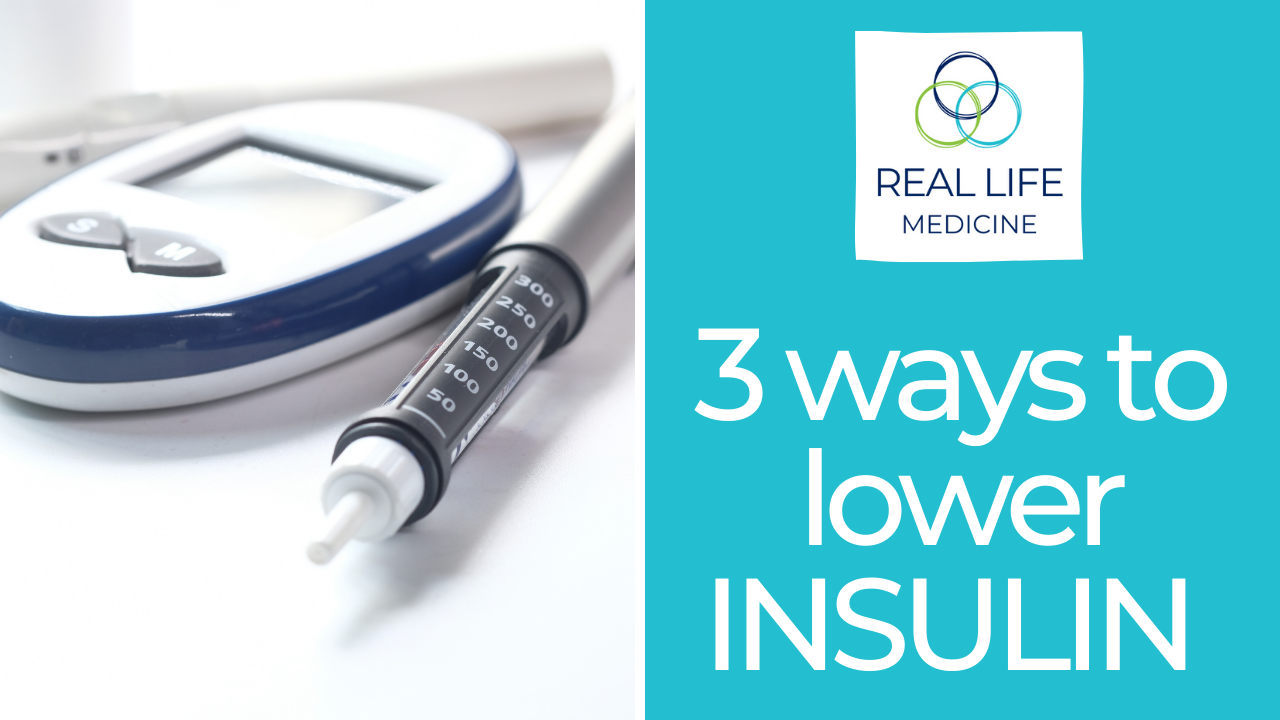
3 ways to lower insulin
Mar 23, 2021There are 3 ways to lower insulin.
- A Low Carb Lifestyle.
Reducing the amount of carbohydrate your pancreas has to process is a wonderful way off giving it a rest.
2. Add it in with intermittent fasting.
Fasting, if you have high insulin, is really hard because you literally run out of fuel. So I always say to people, do your low carb first, open your shed, get access to your fuel. Then when your shed is open, so your shed is your fat stores, then do your fasting. Doing it the other way around, really hard. Really hard and unsustainable, because you literally run out of fuel and people go, "Oh, I can't do it. I tried. I can't do it. I just needed to eat." Of course, you did. You ran out of fuel. That's not your fault.
3. Medication.
Okay, so some medications. We don't want the pancreas to stop making these high levels of insulin. If we just lowered insulin but didn't change the carbohydrates coming in, then we would have diabetes. If we just said to the pancreas, "Right, stop making so much insulin," then our blood glucose would be high and we'd have diabetes straight away. So that's not an option. What we would like if for your body to be less resistant to insulin. In other words to become more insulin sensitive. There is one drug that does this. Metformin. Metformin will sensitise your muscles to insulin, making you less resistant or less tolerant. Your pancreas will not need to make as much and so your circulating insulin will be lowered.
I know that your doctor may not know about insulin and it does break my heart. Having thought more about this, it's now one of my missions, to really try and educate doctors. It's not that they don't care about you. It's just they don't know. You could ask them to listen to our podcast.
Lifestyle medicine is tricky because it takes time. It's very hard for me to explain all of this metabolic dysregulation in a 10 or 15-minute consultation, which is what a standard GP consultation is. 15 minutes. It's not very long.
Lifestyle medicine takes time, and I spend an hour with the majority of my people. My short consults are 20 minutes. But I can tell you now, Medicare does not remunerate long consults to the same level as short ones. That's another one of my things, I get on my high horse. It is much more lucrative to do six 10-minute consultations than one 40 and a 20. When you're running a practice or if you're the owner of the practice you need bums on seats. Running a medical practice is expensive and the only way to make ends meet is to do high throughput, 10 minute medicine.
So at Real Life Medicine, we would love you to help educate your doctor. The best way to get your doctor to sit up and notice is to be a living example. You can be a living example of going from suboptimal health to vibrant optimal health living your best life.
That's how you'll convert them.
Take care wonderful humans
Lucy and Mary
Dr Lucy Burns and Dr Mary Barson

